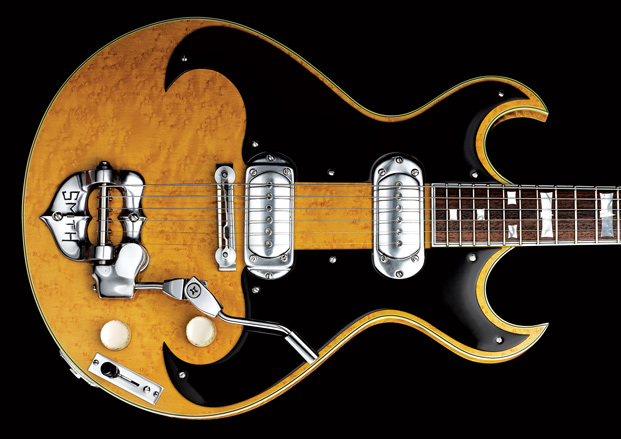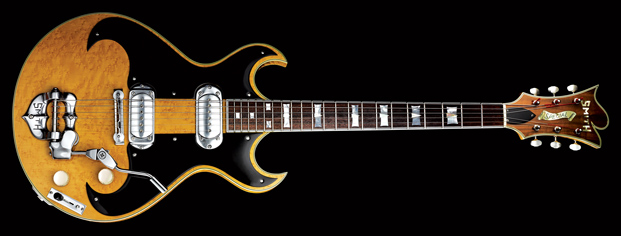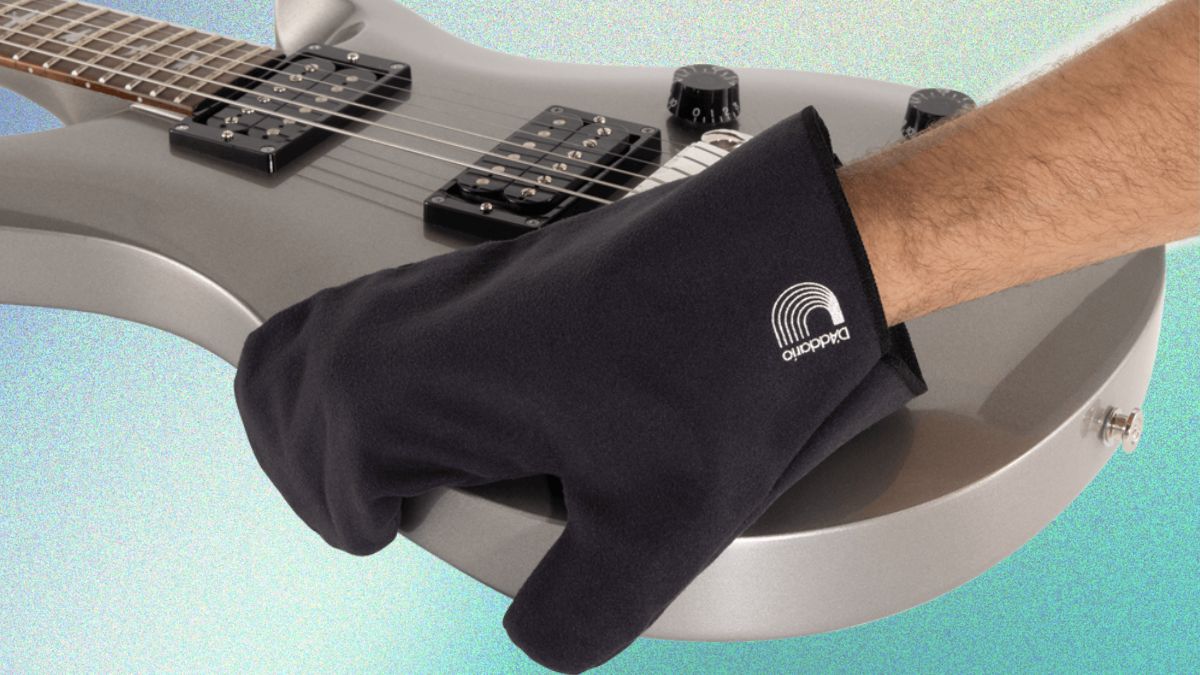TK Smith's Guitars Evoke the Style, Tone and Mojo of Vintage Bigsby Axes
All the latest guitar news, interviews, lessons, reviews, deals and more, direct to your inbox!
You are now subscribed
Your newsletter sign-up was successful

Although it’s just a two- to three-hour drive from Los Angeles, the sleepy, high-desert California town of Yucca Valley might as well be a world away.
In fact, you could say It’s a Mad, Mad, Mad, Mad Worldaway, since the town provided some of the striking, open-desert scenery in Stanley Kramer’s classic 1963 comedy.
Sadly, a lot of the wide-open spaces in the film have been replaced by Walmarts, Starbucks and Taco Bells, but Yucca Valley, which borders Joshua Tree National Park, is still slow paced and friendly enough to remind visitors of a simpler time.
In many ways, it’s the perfect setting for TK Smith Electronic Guitar Service. That’s where lifelong Californian TK Smith produces—entirely by hand—his beautiful midcentury-modern Paul Bigsby–inspired Smith Special. It’s a guitar that would have looked right at home in the hands of Grady Martin or Merle Travis.
“I’m such a Paul Bigsby nut,” Smith says, referring to the pedal-steel and solidbody pioneer of the Forties and Fifties who’s best remembered for the vibratos that bear his name. “In the Eighties, I played in a Western swing band called the Radio Ranch Straight Shooters. Our steel-guitar player, Chas Smith, owned a Bigsby pedal steel, so he turned me on to Bigsby’s guitars. Before that, I only knew about the vibratos.”
Smith has always been inspired by past masters. As the lead guitarist for Big Sandy & His Fly-Rite Trio in the early Nineties, he was a major player in LA’s rockabilly revival. “During my senior year of high school, a guy made me a cassette,” Smith says. “One side was Stray Cats; the other was all 1956 Gene Vincent stuff with Cliff Gallup on guitar. That’s when I knew I wanted to play like that.” Smith’s stellar fretwork can be heard on two seminal Fly-Rite Trio albums, 1990’s Fly Right with Big Sandy & the Fly-Rite Trio and 1992’s On the Go.
After leaving the Fly-Rite Trio in 1992, Smith worked in a fabrication shop for Walt Disney Imagineering. In the early 2000s, he moved to Yucca Valley and began making custom cabinets and furniture. He’s been following his dream—building guitars—for the past four years.
All the latest guitar news, interviews, lessons, reviews, deals and more, direct to your inbox!
Except for the pots and Waverly tuners, Smith builds the Smith Special completely from scratch, from the Bigsby-inspired C.A.R. (Cast Aluminum Replica) pickups to the lacquered Bakelite pickguards. To top it all off, he uses an impressive collection of antique tools, including a Valley buffer from the Twenties, Craftsman drill presses from the Forties and Fifties and a Delta band saw from the late Forties.
“I want my guitars to look like they could’ve come out of the Forties,” Smith says. “That’s how I play guitar. I like to sound like I stepped out of that time period, and I want my guitars to look like that. I could make guitars a lot faster and probably lower my price if I went to CNC [Computer Numeric Control] machinery on a lot of stuff, but this is what I enjoy doing.”

The Smith Special has neck-through construction, a chambered body, and weighs around eight pounds. The neck is curly maple with a walnut strip, and the chambered maple body has a top and back made of bird’s-eye maple laminate. Although the Bigsby influence is obvious, Smith has incorporated his own touches, including a distinctive 3+3 headstock (merely one option), his namesake vibrato, and a custom vibrato arm that brings the pivot point closer to the player’s hand, allowing for easy access and finer adjustments.
Smith tries to build a Smith Special every six weeks or so. One of his more memorable builds was for Rounder Records retro rocker JD McPherson, who once said, “TK is to guitar building what Masamune was to Samurai swords.”
“JD wanted a Smith Special with a Bo Diddley body instead of the double cutaway,” Smith says. “I wasn’t sure if I wanted to do it because I thought it’d be funky, but it came out really cool.”
While the Smith Special is available for order online, Smith often sells his creations through New York City’s TR Crandall Guitars. His long-term goal is to work with a handful of shops in the U.S. that can represent his work with the proper attention to his unique approach. Another goal is to design a bolt-on neck version of the Smith Special. “The idea behind it is to be able to offer my hardware, pickups, and sound on a guitar that will appeal to a wider audience,” Smith says.
Besides the C.A.R. pickups that grace his Smith Specials, Smith makes a vintage-styled CCII pickup that’s popular with Tele players. He also sells a matching Tele bridge pickup that’s built to his specs by Curtis Novak.
To hear Smith’s most recent “Charlie Christian in a cowboy hat” fretwork, check out Charlie Thompson’s 2015 album, The Foothill Sessions. And be sure to hear Thompson's "The Automobile Song" below.
LIST PRICE: Starting at $10,000
TK Smith Electronic Guitar Service, tksmith.net
This story originally appeared in the July/August 2016 issue of Guitar Aficionado magazine. The interview with TK Smith took place in January 2016.

Damian is Editor-in-Chief of Guitar World magazine. In past lives, he was GW’s managing editor and online managing editor. He's written liner notes for major-label releases, including Stevie Ray Vaughan's 'The Complete Epic Recordings Collection' (Sony Legacy) and has interviewed everyone from Yngwie Malmsteen to Kevin Bacon (with a few memorable Eric Clapton chats thrown into the mix). Damian, a former member of Brooklyn's The Gas House Gorillas, was the sole guitarist in Mister Neutron, a trio that toured the U.S. and released three albums. He now plays in two NYC-area bands.
